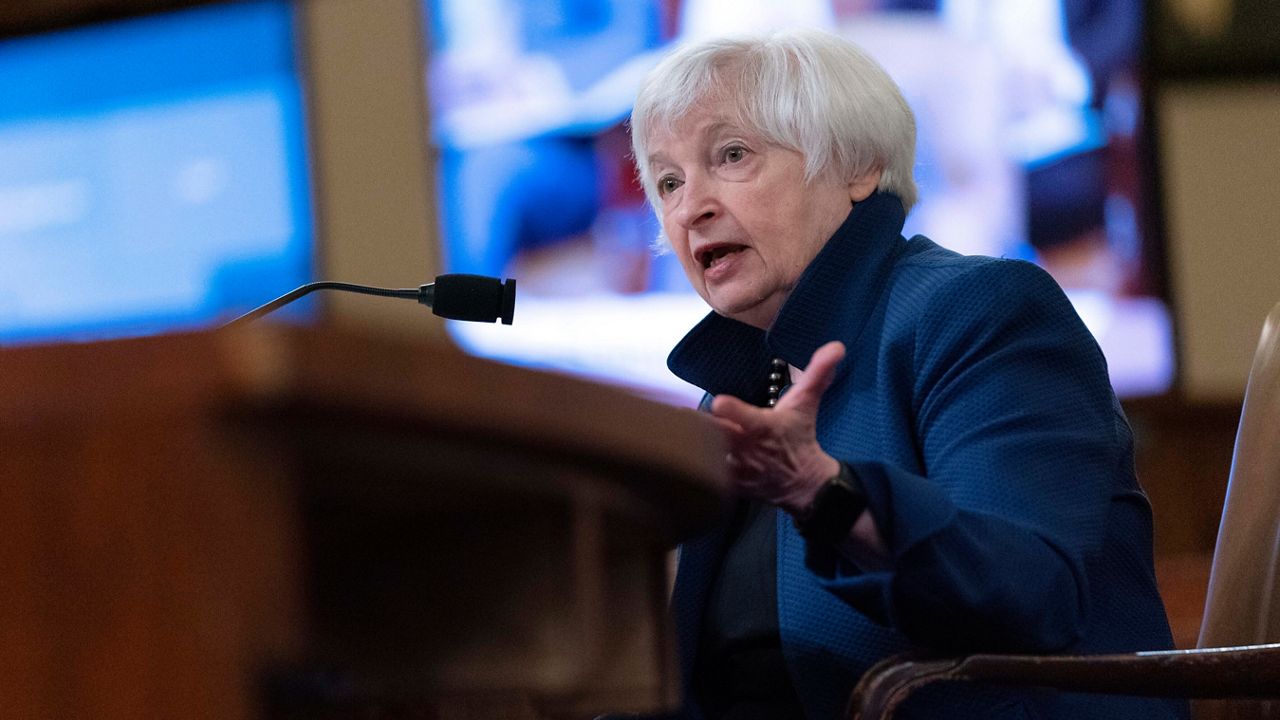Vice President Kamala Harris and Treasury Secretary Janet Yellen were joined by members of Congress on Wednesday to announce the Treasury Department’s $8.28 billion distribution to institutions charged with helping historically disadvantaged business owners, consumers and entrepreneurs access capital and have greater participation in America’s financial system.
“America is a nation that is powered by the ambition and the aspirations of her people,” Harris said in a Wednesday phone call with reporters. “We know the benefit is that it creates jobs, it sparks further innovation, it expands the economy and it makes our nation more competitive.
“But achieving that success requires access to capital,” she stressed, later adding: “And the issue here is that we know not everyone in our nation has equal access to this essential support. Consider, for example, that Black entrepreneurs are three times more likely to report that they did not apply for a loan for fear of being turned away by a bank.”
The funds from the Emergency Capital Investment Program were split across community banks, which then awarded the funds through loans, grants and other forms of assistance to “small and minority-owned businesses and consumers, especially in low-income and financially underserved communities that struggled during the COVID-19 crisis,” per a release from the White House.
The nearly $9-billion distribution spanned across 162 community development financial institutions and minority depository institutions, and Harris held up several awards as prime examples of the program at work.
One such institution – the Native American Bank in North Dakota, which was the recipient of a $37 million ECIP investment – gave a $10 million loan to create an opioid treatment facility on tribal lands.
In Georgia, Carver Bank awarded half a million dollars to “help a Black-owned housing developer build more affordable housing,” Harris said. In Mississippi, both credit unions “led by the great Bill Bynum lent $10,000 to a Black and woman-owned coffee company to help them expand,” she added.
Black Americans represent 13.4% of the U.S. population, yet Federal Reserve figures show they control just 4.3% of household wealth. More than half of Black household wealth is in the form of pension entitlements, which cannot be passed along to future generations. This inequity makes it harder for people living in predominantly Black communities to qualify for business loans and mortgages in ways that could help build their net worth.
And white Americans are far and away more likely to hold a significant portion of assets compared to other racial groups in the United States. During the first quarter of 2022, white Americans held $13.8 trillion in assets from private businesses; Black Americans held $.03 trillion and Hispanic Americans held $.025 trillion in assets from private businesses, per the Fed.
Wednesday’s announcement aims to address the persisting racial wealth gap in the country. According to a late 2021 release from the Federal Reserve, Black and Hispanic/Latino households make only half as much as white households, and also hold only 15-20% net wealth as their white counterparts.
The Fed also said the overall wealth gap has “widened notably over the past few decades.”
“We've long known that too many Americans face significant barriers to participation in our financial system,” Yellen told reporters Wednesday afternoon. “And many times, these are low income people, people of color or residents of rural areas. I'm pleased that we have reached a milestone in our work to increase capital to these underserved communities.”
The Biden-Harris administration has taken a number of steps to address the persisting racial wealth gap in the country, and in December announced the release of $8.7 billion from ECIP to help increase lending to small and minority-owned businesses and people living in poorer communities with limited access to banking.
That $8.7 billion went to institutions headquartered in 36 states, as well as Guam and Washington, D.C. Roughly 54% of the funds went to banks and 46% to credit unions. The distributions ranged from more than $200 million for the largest institutions to less than $100,000 for smaller ones.
The most recent round of funding is focused on communities that “share a common characteristic of having suffered from a lack of investment as opportunity has been disproportionately concentrated in certain neighborhoods and areas of the country,” per the White House. Mississippi, Louisiana, North Carolina, California, and Texas are among the states receiving the highest ECIP investments.
The Associated Press contributed to this report.



